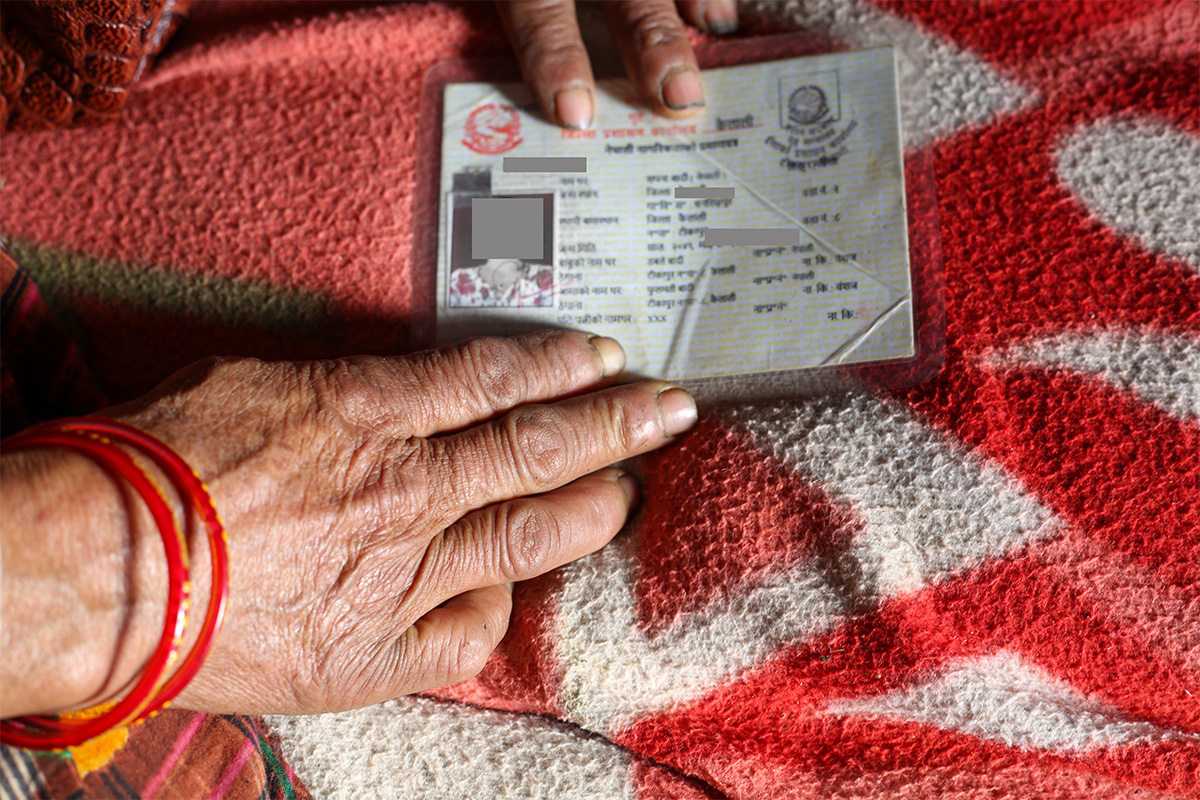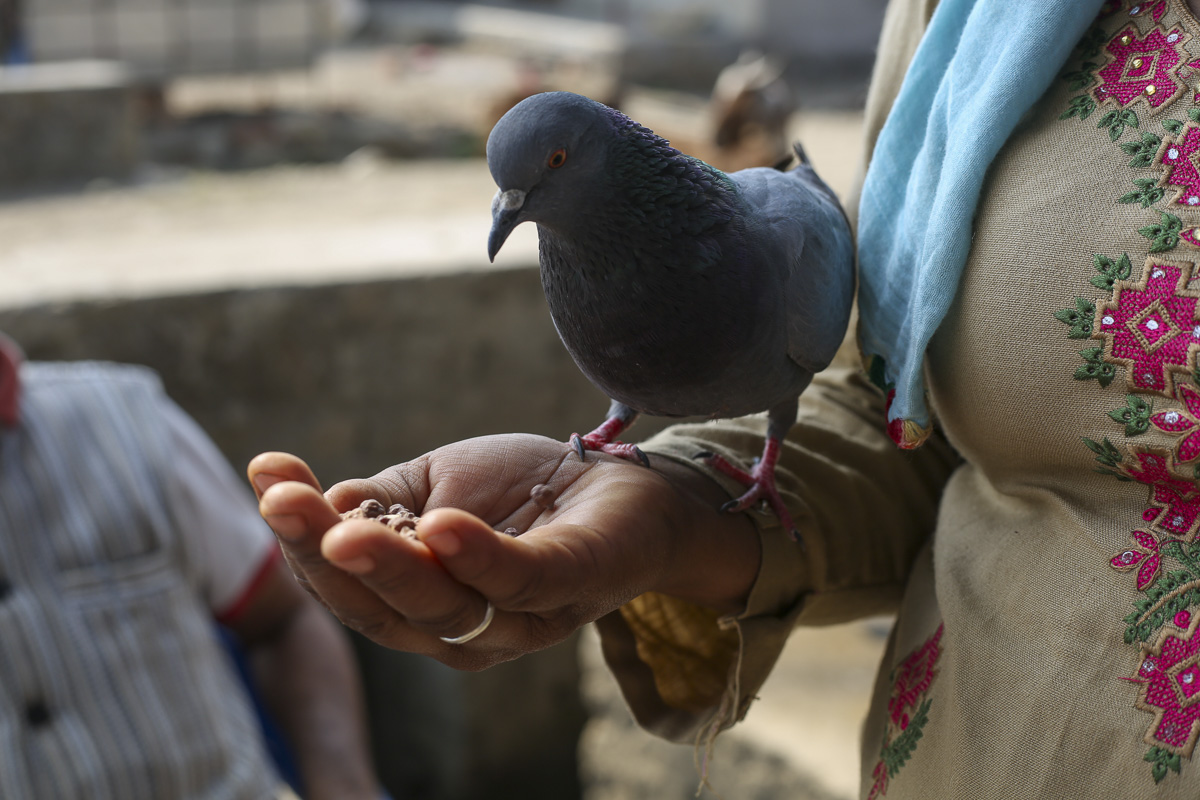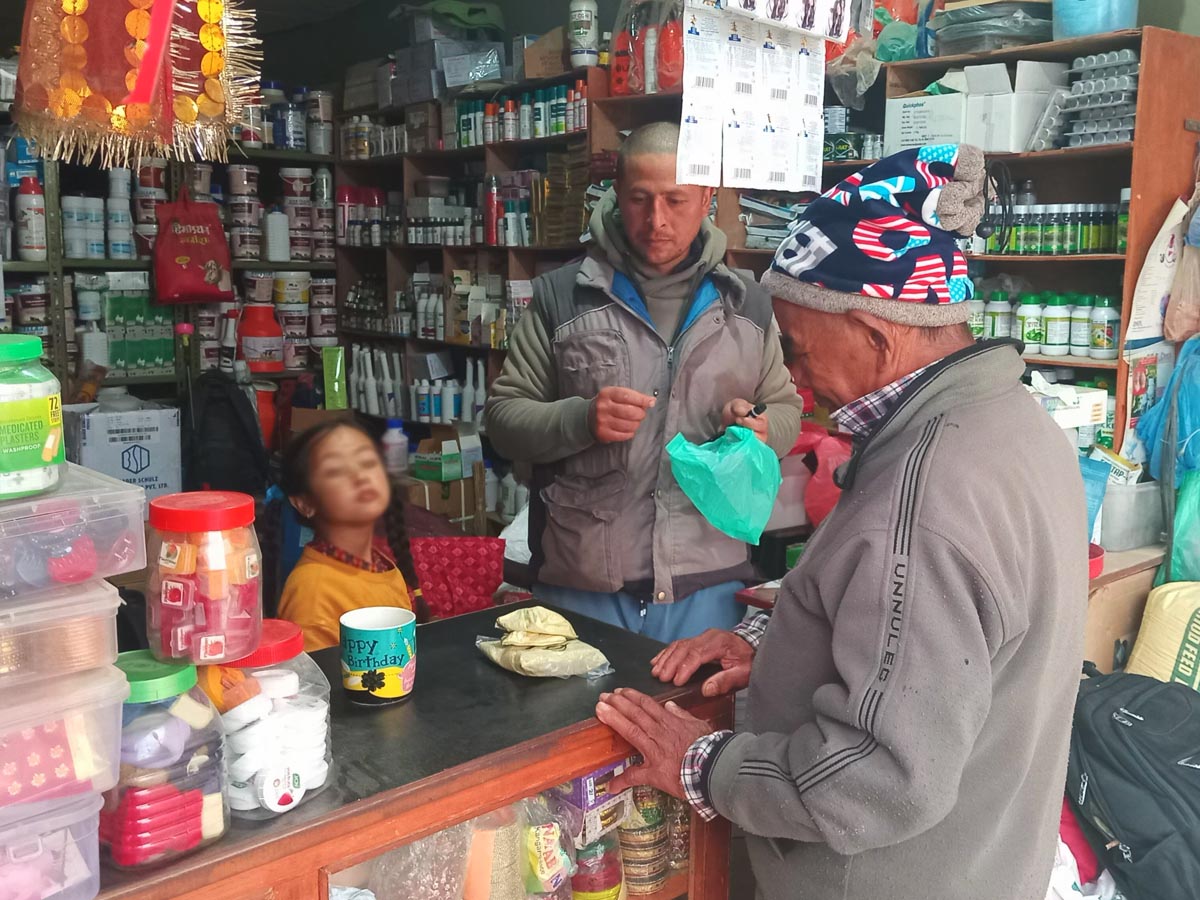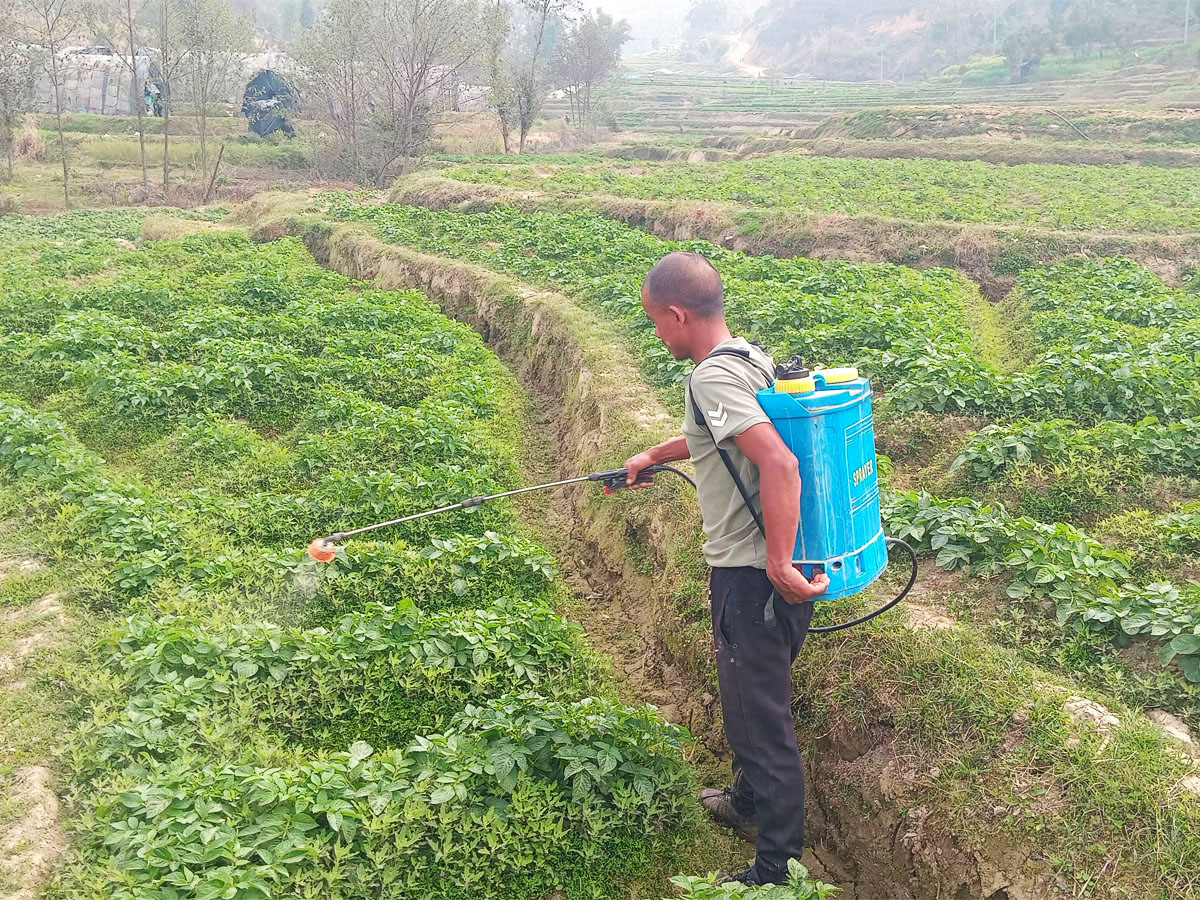Read Part I: Young Badi Girls Trafficked Into Prostitution | आमाबाबुले नै यौन व्यवसायमा धकेल्छन् बादी किशोरीलाई (In Nepali)
Read Part II: Are Badi in Nepal Robbed of Their Identity and Existence? | बादी पहिचानले नै लुटिन्छ अस्तित्व (In Nepali)
Nepal’s existing law has strict provisions to punish those involved in transporting a human being from one place to another place within Nepal or outside the country for the purpose of buying, selling, or forcing into prostitution.
 According to Human Trafficking and Transportation Control Act (HTTCA) (2008), a person involved in forcing into prostitution, with or without financial benefit, is punished with 10-15 years of imprisonment and a fine of 50,000 to 1,00,000 rupees. Likewise, 10-15 years imprisonment and 50,000 to 1,00,000 rupees fine is the punishment for those involved in taking a person out of the country, 15-20 years imprisonment and 1,00,000 to 2,00,000 rupees fine for taking a child out of the country, and so on. Section 15(4) of the Act further says “If anyone commits an offense” of taking girls for forcing into prostitution, “with a person under protection or guardianship or if the victim is a relative of the offender as incorporated in the Chapter of Incest in civil code, he/she shall be liable for ten percentage additional punishment besides regular punishment under this Act.”
According to Human Trafficking and Transportation Control Act (HTTCA) (2008), a person involved in forcing into prostitution, with or without financial benefit, is punished with 10-15 years of imprisonment and a fine of 50,000 to 1,00,000 rupees. Likewise, 10-15 years imprisonment and 50,000 to 1,00,000 rupees fine is the punishment for those involved in taking a person out of the country, 15-20 years imprisonment and 1,00,000 to 2,00,000 rupees fine for taking a child out of the country, and so on. Section 15(4) of the Act further says “If anyone commits an offense” of taking girls for forcing into prostitution, “with a person under protection or guardianship or if the victim is a relative of the offender as incorporated in the Chapter of Incest in civil code, he/she shall be liable for ten percentage additional punishment besides regular punishment under this Act.”

Thus, those of them, relatives and parents, involved in the forced prostitution of Badi girls should have been subject to harsher punishment according to the law, but these legal provisions are hardly implemented in the context of the Badi in Kailali. Many girls are trafficked under the influence of their parents, yet there is no single mechanism to identify such scenarios and safeguard these vulnerable girls from being trafficked. Inspector Mahesh Bikram Shahi of the Bauniya Police Beat acknowledges that numerous underage girls in the area are coerced into prostitution and trafficked to India for commercial sex. He mentions that the situation leaves them with two options: Either victims file a complaint, or the issue is investigated through a sting operation.
Previously, the Dalit Samiti used to work closely with the communities for research and development programs. After the country adopted the federal governance structure, local bodies were entrusted with the responsibility to look into the problems locally. The Dalit Samiti under the Dalit Commission, one of the major bodies responsible for monitoring issues connected to Dalits, is on the verge of becoming defunct as no appointments have been made to the Samiti which questions the role and accountability of concerned local bodies.
In 2011, the Muda Bazaar Bikas Samiti initiated the establishment of a police beat in Muda Bazaar. The beat was set up to have police personnel patrol the area to discourage illegal practices. The irony is that, to this day, the police beat remains abandoned, gathering dust in the midst of the highway.
Krishna Pangeni, former Spokesperson for the Anti-Human Trafficking Bureau under the Nepal Government, shares that due to the dearth of resources and lack of reach, it is difficult to control the trafficking and prostitution of underage girls. A witness protection policy is of utmost importance in order for the victims to come forth and speak out about the injustices being carried out against them. The policy should have a mechanism whereby the victims are shifted to a safer place, and their identity and other personal details are kept confidential. If necessary, the concerned victims should also be given a new identity and address.
However, what is worrying is that Section 15(6) of the HTTCA has a provision for penalizing the victim/witness who turns hostile during the course of a case proceeding. This particular provision has been widely criticized by the people involved in the development sector as it could further make the concerned victim more vulnerable. Thus, in order for the laws and regulations to be more victim-centric, Nepal ratified the UN Trafficking in Person (TIP) Protocol, also known as the Palermo Protocol, in June 2020.
Yet, the protocol is unable to cover the issues of Badi girls who are pushed into prostitution and are trafficked under the influence of their parents.
Silent rebellion
Nearly 34 kilometers south of Muda Bazaar, there is another old community of Badi, the Satti Bazaar. When Phoolmati Badi herself was trafficked around 40 years ago, she never thought she would be able to free herself from this situation, which had held her captive for so long. At the moment, she is compelled to live with her own plight. Her daughter, Sajana, who has a hearing impairment, is compelled to work as a sex worker at a restaurant in Chisapani. Sajana was trafficked by a relative to the brothels of India where she was sexually abused. She had been married for a few years but her husband left her leaving behind a daughter. To fend and provide for her daughter, Sajana is impelled to work as a sex worker.
Sajana is but just one among the hundreds of girls who fall prey at the hands of people who run the sex business. It is very sad but true that she looks for clients with her daughter in tow, which Phoolmati has been strongly opposing. “I am not going to allow my granddaughter to face a similar fate that I faced in life,” says Phoolmati with a stern determination in her voice.

Though Phoolmati does try to demonstrate a determination to save her granddaughter from a life that she had to face, she sounds a bit dejected with society. “All I can do is rebel against this practice because she lives in a society that wants to see her as a prostitute and she will be raised as one,” she adds.
Phoolmati at present lives with her two goats in Satti. She does smile but deep down she is bitter with deep scars in her heart that she was unable to save her daughter from falling into that trap. Each wrinkle on her face seems to tell a story of distraught and despair. “I always hated what I was doing but couldn’t stop my daughter from getting involved in it. I have been living with this burden for so many years; I have failed as a mother,” she whispers with tears streaming down her cheeks.
But with strong voices being raised against this prevalent custom within the Badi community, there is that proverbial silver lining. With activists in like Yasodha Badi (name changed) taking up the cause it may not be very long when the communities will witness positive changes.

Yasodha was trafficked from her home and sold to a person in India by her cousin sister. After having faced six harrowing years of torture in an alien village in India, she was finally rescued by a man who she decided to spend the rest of her life with. They jointly worked together fighting against sex trafficking and prostitution especially focusing on the border areas in the far west of the country. They were also a part of the crowd that took to the streets in revolution against this age-old practice. The activism in Balchaur during the Badi revolution strengthened to such an extent that activists who themselves belong to the area made sure they eradicated trafficking and forced prostitution.
Though prostitution has not been completely eradicated, there is a calm wave of positive change visible in Rajapur, which is located 10 kilometers away from Satti and home to one of the oldest Badi communities infamous for sex work.
Supported by different NGOs, a group of 40 women in the area has a room of their own where they meet and discuss several issues. They have also set up a savings fund to help each other in need.
As we entered the room, we were struck by a huge poster of Goddess Saraswati pasted on one of the walls. Also pasted on the wallpaper was a list of names of all the members in big bold letters. And what was striking was that the names of the members were followed by the surname ‘Nepali’, a change they want to manifest in themselves.
(This story was published with support from Humanity United.)
Read our Republishing Policy here.



